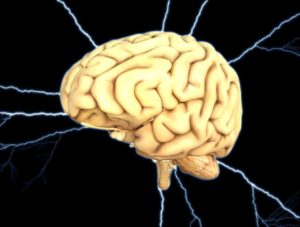Our brain is probably the most important part of our body. It’s what separates us from what we consider as lower life forms. We have the ability to think, make decisions and communicate with each other.
But there are times when we take things too far and stress ourselves – and our brain – further than we should.
It’s at times like these we need to do something to reduce the stress that’s building up in our brain otherwise the consequences could be (at the very least) unpleasant.
Get a good night’s sleep
Sleep is essential but, so often, we sleep erratically and don’t really get a good night’s sleep.
- Get into a routine – go to bed at roughly the same time every day
- Make sure your room is dark – that means the standby lights on anything electronic need to be covered up and even the digits on your alarm clock (I use a cloth to cover mine)
- Keep the climate in your bedroom cool. This isn’t always easy if temperatures in your part of the world seem to have a life of their own but the closer you can keep your bedroom to the same temperature every night, the better
- Reduce screen time before you go to bed. Ideally, don’t look at a bright screen for about an hour before you aim to go to sleep. If your phone has a blue light filter, use it
- Don’t consume caffeine or alcohol close to bed-time
- Don’t fret if it takes a while for this new routine to take effect. Habits take a while to change
Get more organized
 Even just jotting things down can help with this.
Even just jotting things down can help with this.
Our brains are nowhere near as organized as they should be. They even make your computer’s storage look tidy (I can assure you it isn’t!)
The more you can do to help your brain be at least slightly more organized, the better.
But don’t take this to the extreme.
Sometimes some of the apps and other things we try to use to organize ourselves are counter-productive. We spend more time stressing about whether we’ve got something completely right than we should – unless you’re a rocket scientist or similar, there’s a good chance that “good enough” is plenty good enough.
A simple written journal is low tech but often more effective than the most elaborate gadget or app.
Relinquish control over things you can’t control
We can’t control everything in our lives, no matter how much we’d like to or think we can.
Accept that there are lots of things in your life that you simply can’t control and do your best to release the grip you’re trying to hold on them.
For instance, we can’t control the weather (heck, we can barely predict it reliably) but lots of us worry about it nonetheless.
And there are lots of other things we worry about and stress our mind about that we simply can’t control.
Let go of as many of them as possible.
If that seems impossible, start with a small item – one that, deep down, you really don’t care about – and stop trying to control that.
Then build up to bigger items.
Because if you do it the other way round, that’s a recipe for disaster.
Learn to chill out
Children and animals seem to be able to chill out and relax almost on demand.
But as we get older and supposedly wiser, we lose that skill.
Find something that helps you relax:
- Chill-out music
- Exercise
- Meditation
- Yoga
- A warm bath
Anything that helps you chill out a bit more often.
Cut down on artificial stimulants
You might think you can’t get through the day without coffee – and, short term, that could be true – but reduce the quantity and the strength of the coffee you do consume so that you’re in charge of it rather than the other way round.
The same goes for other legal and less-legal substances that are designed to stimulate our minds.
Take back control of your life by reducing your use of artificial stimulants.
Laugh more often
Seeing the funny side of things is a fantastic way to reduce the stress in your brain.
If you’re one of those lucky people who can do this with almost any event, do it more often.
If that’s not something you can do easily, find things that make you laugh. YouTube is good for that – and doesn’t have the distractions that places like Facebook and Twitter and even Pinterest can introduce.
Funny movies can be a good way to do this as well.
Laugh more often and you’ll begin to find that laughter really is the best medicine.
Take a deep breath
Deep breaths are easy.
No-one will wonder why you’re breathing so there’s no risk of weird reactions from other people.
The extra time to take a deep breath has a naturally calming effect on you.
And the extra oxygen helps your body in numerous ways.
Use self hypnosis
Or, more correctly, listen to a pre-recorded hypnosis track.
These are created by some of the top professionals in the field and are written so that they’re word perfect (something a face-to-face appointment can’t be).
They’re also highly effective. Listen to a track a handful of times and notice how the stress and tension in your brain diminishes with no real effort on your part.





